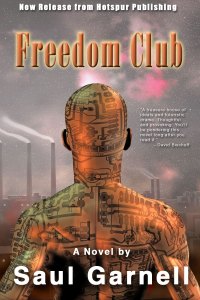Though worshiped as one of the greatest literary minds of the 19th century, one might be surprised to learn that Henry David Thoreau’s modern reputation significantly differs to that during his life. Upon close inspection, it seems apparent that Thoreau made little effort to earn a living at being a profession writer. Instead choosing to work at odd jobs, the pencil factory owned by his family, and as a surveyor.
Now when I say a “professional writer”, I mean someone who spends a majority of their time writing for publication and its related income. That statement does not describe him, though he may have spent a great deal of time writing, most of it was for his own interest. He wrote over 2 million words in his journals that span 25 years. Only a minority was devoted to publication.
This point though shocking to some is clear upon review of few things. First, Thoreau published a relatively small number of essays. In total 21 (see below), of which most were published before Walden was released in 1854. Regarding books, he published only two; the first one “A Week on the Concord and Merrimack Rivers” was self published, and a dismal failure. The second was Walden, only a mild success published through a respected publisher Ticknor and Fields. And finally, one must take careful note that publications and mining of his journals after his death sold more copies of Walden then ever during his lifetime. This not only made Thoreau a common name in literature, but also did much to cast the image we now have of him in modern day.
Looking first at his early publications, what becomes immediately apparent is that a great many were published by The Dial magazine. Six publications came out in rapid succession between 1840 and 1844, when the Dial finally closed down for financial reasons after four short years. But in my opinion, the Dial was primarily a communication vehicle of the Transcendentalist Club, where Henry and Ralph Waldo Emerson were both members. There is nothing wrong in that. The club strived to get their ideas published at a time when the more well respected magazines were unwilling to hear them out. But Emerson was influential. He certainly helped Henry getting commissions, and one can surmise Henry was not submitting blind to an impartial editorial staff. In addition, one must assume that due to its financial instability, the magazine itself was not widely circulated. So Henry’s notoriety due to publication in The Dial remained fairly obscure.
The next major outburst of publications take place after Henry finishes his life experiment at Walden Pond in 1847. Based on journal’s kept during that time, a handful of essays were published, along with the self publication of his first book, “A Week”. The book was an outright failure, which not only put Henry into serious debt, it aggravate the friendship Henry had with Emerson, who had to guarantee a loan for Henry to cover the cost of publication.
Now it is true that Thoreau did write his journal’s with some intent on future publication, but that doesn’t seem to have been his primary motivation. He seems to have written them mostly because, well he enjoyed it. Still, perhaps to Thoreau’s surprise, Walden was a mild success in 1854, and sold out within a year or so after receiving generally good reviews. This together with articles published in Sartain’s Union Magazine (as well as a few other) finally demonstrate the beginning of a writing career. However, one must wonder why, with Walden and success and his name becoming recognized, only 13 magazine sales took place from 1848 until his death in 1862. This is not a large number in my view, and seems even smaller when one considers the added push provided by Walden.
To see why Thoreau published so infrequently after the success of Walden, one needs to look at his journals. Clearly, upon reading the entries in the 1850’s, Thoreau’s attitude to work and publishing are laid clear. He doesn’t desire to maximize his work (and that includes publication), and he doesn’t enjoy kowtowing to the whims of editors and the public. Thoreau would rather enjoy nature, journalize his thoughts privately, and do any other manual labor that supplied him the basic necessities that he needed to Live Simply.
Consider the following;
April 16, 1852
How many there are to advise you to print. How who advise you to lead a more interior life. …Nobody ever advised me not to print but myself!
Here, Thoreau makes clear his dislike of publication
August 9, 1854
To Boston.
Walden published. Elder-Berries. Waxwork-yellowing.
Even though Thoreau may be hiding his overall excitement, this does not look like the comment of a typical author who is ready to attack their writing career with any vigor. My interpretation is that Thoreau, true to his nature, simply does not place much import on publication.
February 18th, 1855
Many will complain of my lectures that they are Transcendental. “Can’t understand them.”
…
If you wish to know how I think, you must endeavor to put yourself in my place. If you wish me to speak as if I were you, that is another affair.
Here Thoreau displays his disdain for lectures he has given. And this point harkens to much of Thoreau’s life, namely that most people of that time found him hard to understand and argumentative; if not down right rude.
This of course should not be much of a surprise. He was a man who spoke his mind. But more importantly, he criticized the very foundations of 19th century society. Unimpressed with the wonders of technology, and emphasizing the enslaving nature of work, church, and mindless consumerism; Thoreau spoke frankly and openly against the many cherished values of his time (our time too!). Throw in the fact that he and his Transcendental philosophies did not support the dogmatic rhetoric of the Christian church, and it becomes obvious that Thoreau could not fit it.
And it is exactly because he did not fit into 19th century life, that he is so much loved and cherished by future generations. Many values of the 19th century have changed, and modern readers have not just found themselves in line with this obscure writer, they fell in love with him. Speaking words of a sensible prophecy, he quickly imbibes an individual with hope and the common sense to untangle the curse of modern living. Not with brutal words of revolution, but with pleas to one’s inner sensibilities. His kind unassuming manners have won over some of the greatest reformers of our time.
Finally, the Walden period journal’s were reprinted in the mid 1860’s by a close friend who understood their value. Over time, further reprints have met with greater popularity, to the point where Thoreau has become a legend. A master of poetry and literary device, gaining more fame and accolades than he could have ever imagined (or wanted) during his life.
Such is fame.
***
Essays and Works in Progress Published during Thoreau’s Lifetime
“Aulus Persius Flaccus.” The Dial 1 (July 1840): 117-121.
“Natural History of Massachusetts.” The Dial 3 (July 1842): 19-40.
“Homer, Ossian, Chaucer.” The Dial 4 (January 1843): 290-305.
“A Walk to Wachusett.” The Boston Miscellany 3 (January 1843): 31-36.
“Dark Ages.” The Dial 3 (April 1843): 527-529.
“A Winter Walk.” The Dial 4 (October 1843): 211-226.
“The Landlord.” The United States Magazine and Democratic Review 13 (October 1843): 427-430.
“Herald of Freedom.” The Dial 4 (April 1844): 507-512.
“Thomas Carlyle and His Works.” Graham’s Magazine, serialized in two installments: 30 (March 1847): 145-152; 30 (April 1847):
238-245.
“Ktaadn and the Maine Woods.” Sartain’s Union Magazine, serialized in five installments: “The Wilds of the Penobscot.” 3 (July 1848): 29-33; “Life in the Wilderness.” 3 (August 1848): 73-79; “Boating in the Lakes.” 3 (September 1848), 132-137; “The Ascent of Ktaadn,” 3 (October 1848): 177-182; “The Return Journey.” 3 (November 1848): 216-220.
“Resistance to Civil Government” (1849) / “Civil Disobedience” (1866) Aesthetic Papers (May 1849): 189-211.
“The Iron Horse.” [section from yet unpublished Walden] Sartain’s Union Magazine 11 (July 1852): 66-68.
“A Poet Buying a Farm.” [section from yet unpublished Walden] Sartain’s Union Magazine 11 (August 1852): 127.
“An Excursion to Canada.” Putnam’s Magazine, serialized in three installments: 1 (January 1853): 54-59; 1 (February 1853): 179-184; 1 (March 1853): 321-329.
“A Massachusetts Hermit.” [six selections from Walden in advance of publication] New York Daily Tribune (29 March 1854).
“Slavery in Massachusetts.” The Liberator 24 (21 July 1854).
Cape Cod (incomplete), Putnam’s Magazine, serialized in four installments: “The Shipwreck.” 5 (June 1855): 632-637; “Stage Coach Views.” 5 (June 1855): 637-640; “The Plains of Nanset [sic].” 6 (July 1855): 59-66; “The Beach.” 6 (August 1855): 157-164.
”Chesuncook.” The Atlantic Monthly, serialized in three installments: 2 (June 1858): 1-12; 2 (July 1858): 224-233; 2 (August 1858): 305-317.
”The Last Days of John Brown.” The Liberator 30 (27 July 1860).
”A Plea for Captain John Brown.” Included in Echoes of Harper’s Ferry, edited by James Redpath. Boston: Thayer and Eldridge, 1860: 17-42.
”Martyrdom of John Brown.” Echoes of Harper’s Ferry: 439-445.
”The Succession of Forest Trees.” The New York Weekly Tribune (6 October 1860).













